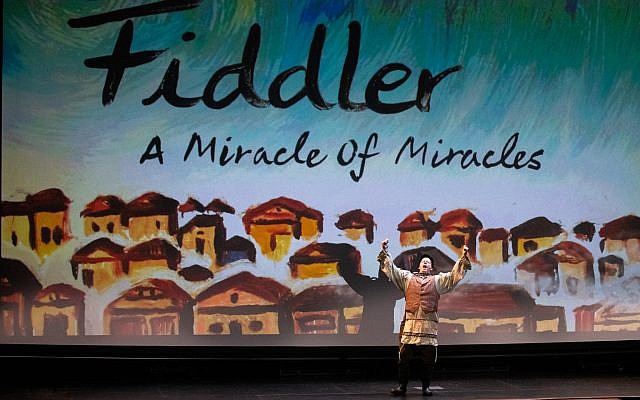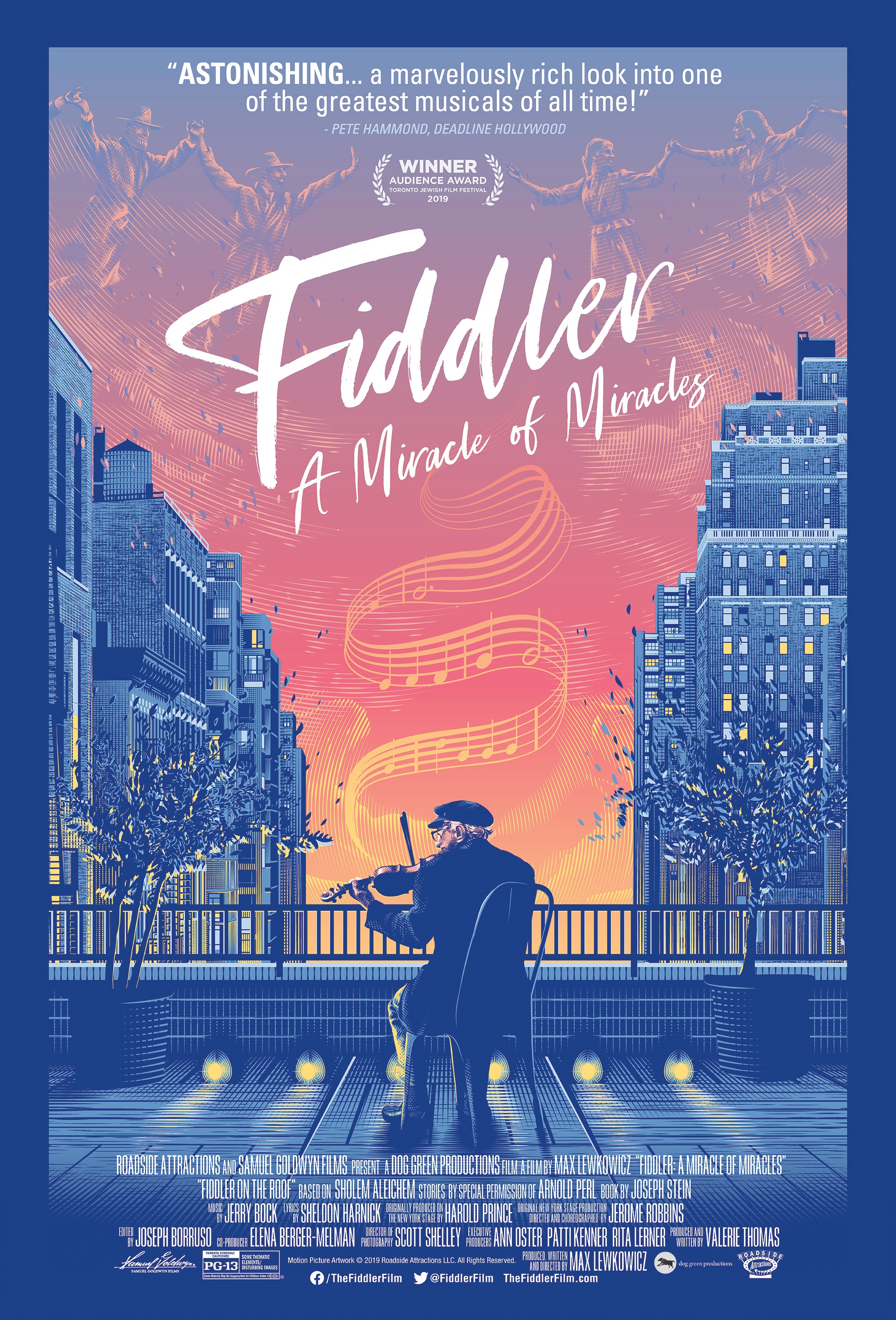Fiddler’s Story: Tradition to Modernity
A new documentary delving into the legacy of "Fiddler on the Roof," and was screen Aug. 6 by the Atlanta Jewish Film Festival
After 37 years with the Atlanta Journal-Constitution and now with the AJT, , Jaffe’s focus is lifestyle, art, dining, fashion, and community events with emphasis on Jewish movers and shakers.

The Aug. 6 Atlanta Jewish Film Festival audience was mesmerized by a sold-out screening of the new documentary “Fiddler: A Miracle of Miracles” at the Sandy Springs Performing Arts Center. It didn’t really fit in the pocket of a “pure documentary,” so it was a movie within a movie, or a movie about a movie. Labels aside, the film was nothing if not emotional.
The 500 moviegoers were the maximum permitted by the film’s distributor ahead of the upcoming commercial release.
Before the movie, Tony Award-winning actor Shuler Hensley reprised his role as Tevye in “Fiddler on the Roof.” Dressed in costume and working his way down the aisle, Hensley, who serves as the associate artistic director of the City Springs Theatre Company, treated the audience to a rendition of “If I Were a Rich Man.”

“AJFF Selects’ showing of ‘Fiddler: A Miracle of Miracles’ reminded me why this beloved Broadway classic connects so powerfully with audiences,” said Sari Earl, AJFF’s new board vice president, who introduced the film. “Universal experiences of life, love, parenting, loss, and the hope we all need during difficult times had people laughing, crying, and cheering.”
Brandt Blocker, artistic director of the City Springs Theatre Company, said, “For a sheltered Catholic boy from New Orleans, ‘Fiddler’ was my first exposure to Yiddish culture.”
That, indeed, was the theme of the evening: universal emotions bringing people together, considering it was performed around the world, including a controversial performance by an all-black and Hispanic school in 1970.
Roots
The glue of the film was remarks from gracefully aged Sheldon Harnick (lyrics) and Jerry Bock (music), who traced the adaptation of the “Fiddler franchise.” They connected the dots of the original Sholem Aleichem stories, where the people came alive with their anger and neuroses, the simplicity and fragility of life, and pogroms.
There was a lesser known female empowerment theme as Jewish women were sent off to South America enslaved as prostitutes at the time “Fiddler” is set, 1905, versus Chava, the modern “Fiddler” daughter who dared to buck tradition. (Even Gloria Steinem and Betty Friedan were subliminally on screen.)
Note the original “If Were A Rich Man” lyrics morphed from “If I were a Rothschild, … I’d take my coat out of the pawn shop.”
Produced by Hal Prince, who died July 31, the play premiered in Detroit to poor reviews as “too Jewish.” Much refinement occurred – songs deleted, script changes.
Layers
The show’s genius, Jerome Robbins, was front and center. His choreography was pure magic, but he extracted pounds of flesh to get there. He was abusive to actors with blame and dressing down sessions.
He was careful to not “stage” the dance sequences, but rather ushered their flow. The most exciting was the “bottle dance” that he replicated from a religious wedding experience. Imagine the fragility of balancing glass on heads. It was precise.
The moody Robbins deserved “props,” but was portrayed as a miserable character. Struggling with his own homosexuality and Jewishness, he “named names,” testifying at the House Un-American Activities Committee to tamp his secrets.
Broadway phenom Lin Manuel Miranda (“Hamilton”) shared that as a fifth-grader, “Fiddler was his only exposure the Jewish experience.” Fast forward to his own wedding, where he performed “Fiddler” with his Dominican father-in-law. Marvelous cross-cultural journey!
The biggest laugh of the night came when movie director Norman Jewison admitted, “Even with a name like mine, I’m a goy!” He certainly “got it” – shown weeping while shooting scenes. Another strong audience reaction came from Motown, The Temptations’ shaky attempt at “If I Were a Rich Man.”
Tevye
The movie linked the various Tevyes and what they brought to the character. Zero Mostel, arguably the most famous, was shown as a belligerent egoist “on and off the set.” Herschel Bernardi was sentimental as his son Michael reprised the role. Israeli Chaim Topol brought a new vigor of masculinity. He laughed, “I was especially poignant because I had a toothache during the filming, which came out as real anguish.”
Much was made of the “Do You Love Me?” number with the explicitness that Goldie and Tevye still had sexual passion.
What they all had was a personal relationship with G-d and the imperative to maintain tradition, which was the final dénouement.
Modernity
“Fiddler” has been performed every day somewhere in the world since premiering in 1964. It held the record for most performances for 10 years before being replaced by “Grease.” The movie version of “Fiddler” premiered in 1971.
The end of the documentary got edgy by superimposing current political immigration and protest scenes. Is our border crisis now morally equivalent to pogroms? One voiceover stated, “Leaving because you were thrown out like Anatevka – given no choice – in three days, is not the same as seeking a border crossing for a better lifestyle.”
The young Bernardi closed with a trip to Kiev, Ukraine, for a Jewish wedding. The new perspective was the African-American violinist who performed there as she had in the live U.S. shows. Bernardi mused, “This is complex. It’s not a melodrama. It has lasted.”
Another delight was the red and ochre floating drawings suggesting Chagall-like scenes.
Some moviegoers commented that the film was 15 minutes too long; but I didn’t want it to end.
The movie opens Sept. 6 at Regal Tara Cinemas on Cheshire Bridge Road and The Springs Cinema & Taphouse.
Don’t miss it!



comments